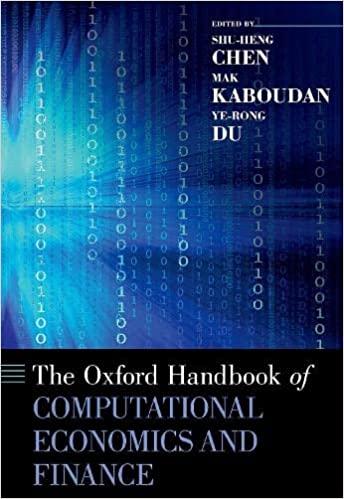Question
You are going to buy a house for $375,000 with 20% down, you are offered a 6.68% interest rate for a 30-year loan and a
You are going to buy a house for $375,000 with 20% down, you are offered a 6.68% interest rate for a 30-year loan and a 5.77% interest rate for a 15-year loan (These are current average interest rates). After taking FINN3261, you have decided to do the math to make an informed decision between the loans. You know that a 30-year loan minimizes risk by increasing cash flow, but in a high-interest rate environment, it might be better to minimize debt. Your family says you are confused and you need to do what they did and get a 15-year loan. Your uncle exclaims, "Why would you want to pay almost 1% more? Clearly, you didn't learn anything in school about finance." Your older sister says, "I took your professor's class, and he said you should never do a 15-year loan. Do you think you are smarter than a professor?"
Calmly, you calculate what would happen if you invest the difference between the two loans into the S&P500 index to determine if you will be better off under current interest rates and expected return of the S&P500. The S&P500 index has returned an annual rate of between 7.4% after adjusting for inflation and reinvesting dividends since 1950. You could possibly use what you have saved between the two payments to pay off the remaining balance of the 30-year loan.
Will you be able to pay off the loan in 15 years? If so, how much money will you pocket after you pay the loan off in 15 years on the 30-year mortgage? If not, how much more will you need to pay off the loan? If you wanted to pay off the loan in 15 years how much would you have to add to the difference between the two loans?
Surprised by your results, your sister aptly points out that your professor clearly recommended taking the 30-year loan when she was in school. You ask her what the rates were. She says, "The rates offered were 3.4% interest rate for a 30-year loan and a 2.9% interest rate for a 15-year loan in 2020." You plug in those numbers into your calculator to explain why the professor recommended a 30-year loan without question under that interest rate environment.
Assuming the same return on the S&P500, will you be able to pay off the 30-year mortgage in 15 years under those rates? If so, how much money will you pocket after you pay the loan off in 15 years on the 30-year mortgage?
In order not to totally humiliate your sister, you reminded her that the professor stated that you have to do the math everytime the investing context changes, and heuristics seldom hold up over time. Working out the math is complicated, and investment gurus often push heuristics (rules of thumb) to make investing seem less complicated. You acknowledge that under different interest rates environments, you might take different actions. You tell her that if she was buying a house in 2020, she was offered different rates, which would motivate different choices.
What would you choose to do under today's interest rate environment? Would you choose the 30-year or 15-year mortgage and why? Why might you still take the 30-year mortgage even if it does not create enough money to pay the mortgage off after 15 years?
Step by Step Solution
There are 3 Steps involved in it
Step: 1

Get Instant Access to Expert-Tailored Solutions
See step-by-step solutions with expert insights and AI powered tools for academic success
Step: 2

Step: 3

Ace Your Homework with AI
Get the answers you need in no time with our AI-driven, step-by-step assistance
Get Started


